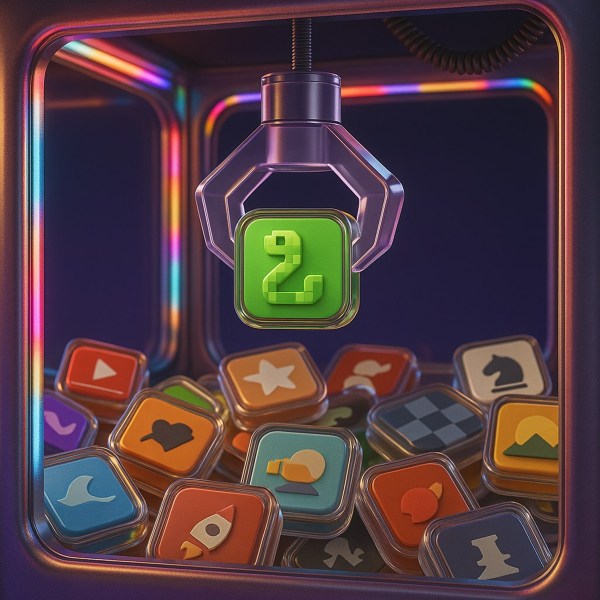PlaysOut launches Web3 mini-game platform for superapps
PlaysOut launched its on-chain mini-game Platform and SDK toolkit, fully integrated with WeChat’s mini-game publishing framework. …

PlaysOut, the startup redefining how mini-games scale, launched its on-chain mini-game Platform and SDK toolkit, fully integrated with WeChat’s mini-game publishing framework.
PlaysOut recently raised $7 million in seed funding at a $70 million valuation, with backing from top-tier investors including KBW, OKX Ventures, Kenetic Capital, and Pacific Century Group.
PlaysOut said it is uniquely positioned to shift how superapps—messaging services, wallets, delivery platforms, and ride-sharing apps—retain, monetize, and reward their users. It said it is ready to scale globally across Android and iOS.
The company said this is frictionless publishing at scale. A streamlined bridge between content, users, and the on-chain future. PlaysOut isn’t just a platform—it’s the launchpad for the next wave of interactive
entertainment.
PlaysOut’s mission is clear: transform apps into superapps by embedding lightweight, engaging mini-games that seamlessly connect Web2 and Web3 worlds. With features like frictionless stablecoin payments, PlaysOut meets urgent developer and platform demands—bridging traditional content into the expansive possibilities of on-chain economies.
A platform for the Superapp era

Mini-games aren’t just games. They’re frictionless loops of engagement—designed to live inside the platforms people already use: WeChat, Discord, YouTube, Netflix, Telegram.
The future of gaming isn’t standalone—it’s embedded and PlaysOut is the infrastructure behind this shift. A full-stack SDK and dev layer that lets creators build once and publish everywhere, turning any app into a gamified platform with a single integration, the company said.
Developers and IP holders no longer need to rework gameplay or rebuild distribution flows to reach global audiences. PlaysOut removes that friction. Its architecture allows mini-games to launch seamlessly across platforms, with built-in localization for language and culture.
Web2 content and IP can now flow on-chain seamlessly through lightweight, gamified systems, without the clunky sign-in flows or fragmented user journeys. Stablecoin payments come built-in, and for teams ready to go deeper, PlaysOut unlocks tokenized rewards, non-fungible token (NFT) trading, and other native mechanics that naturally embed into gaming loops. These are modular tools for monetization, ownership, and community—exactly the features Web2 studios are chasing, now made accessible by design.
“PlaysOut is the infrastructure layer for the next era of gaming,” said Jassem Osseiran, cofounder of PlaysOut, in a statement. “We’re giving developers and IP holders a one-click path to launch across the world’s most powerful consumer ecosystems—blending Web2 scale with Web3 ownership. Content flows on-chain without friction, stablecoin payments come standard, and games become engines of engagement. Platforms want retention. We deliver it—seamlessly, through play.”
From Web2 audiences to Web3 communities

PlaysOut is already powering mini-games and distribution channels for a fast-growing network of partners—including Web2 giants like STC Play and VIU, and Web3 ecosystems such as OKX Wallet, Coinbase Wallet, and World App. It also serves as the connective tissue between culturally iconic gaming communities like DOGE and Yield Guild Games (YGG), and a new generation of mobile-first users worldwide.
With early traction from studios behind games with 100 million-plus users and nine-figure exits, PlaysOut is onboarding globally recognized IP and transforming them into bite-sized, shareable, and monetizable mini-games—purpose-built to run inside superapps.
The Shopify of mini-games
Just as Shopify unlocked global commerce for anyone with a product, PlaysOut empowers developers to publish and scale mini-games across the world’s biggest apps. With one integration, developers can go live everywhere—leveraging a powerful SDK that supports fiat and crypto payments, NFT features, and on-chain loyalty systems.
This launch positions PlaysOut as the foundational layer for mini-game ecosystems inside the most downloaded platforms on earth, offering both developers and platforms a seamless way to tap into the surging demand for lightweight, social-first gaming.

PlaysOut has an 18-member team, comprising 10 technical and 8 operational leads. In a message to GamesBeat, Osseiran said, “We don’t try to guess what’s fun. We scale what’s already proven. PlaysOut curates games that have real traction — games from WeChat and TikTok that millions already play, love, and come back to.”
Osseiran added, “They’re simple, instantly accessible, and deeply addictive, the fundamentals of casual gaming done right. We’re not reinventing the wheel. We’re taking games that have already won and opening them up to a global audience. We’re about expanding content that is already battle-tested and built to last, supported by tech for fast and seamless experience.”
For Osseiran, mini-games are built on fast, simple loops — perfect for asset creation at scale.
“We turn in-game items — characters, skins, upgrades, badges into on-chain assets,” Osseiran said. “These assets aren’t just locked inside one mini-game. They live on the blockchain, owned by the player, and portable across the entire PlaysOut ecosystem.”
The company focuses on ownership, where every item a player earns or buys becomes a real, tradeable or playable asset. It also has incentives: players are rewarded with assets they can use to play trade, or upgrade. Achievements turn into NFTs, gameplay generates real value, and loyalty is recognized.
And it focuses on interoperability, where a skin won in a platformer could become a badge in a puzzle game, or unlock perks across multiple titles creating a shared ecosystem of value, not isolated silos. And it relies on stablecoins and crypto payments to remove friction at the commerce layer, while NFTs create persistence across games.
“Beyond gameplay blockchain solves a real business problem: PlaysOut uses stablecoins and crypto to break payment barriers for WeChat and TikTok mini-games going global,” Osseiran said. “Developers can now monetize instantly with stablecoins and on-chain tokens — unlocking faster revenue, lower costs, and minimal risk, without depending on slow and fragmented fiat systems.”